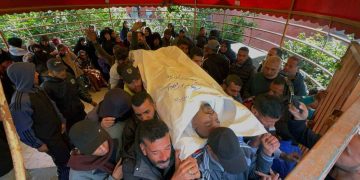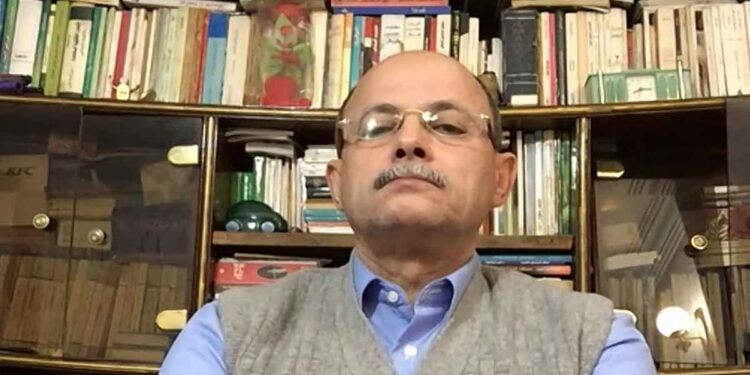The Egyptian journalist and former editor-in-chief of the government newspaper Al-Ahram, Abdel Nasser Salama, entered his third day of a hunger strike in his prison cell in the high-security Scorpion Prison, in protest against his detention conditions.
Salama is protesting his ongoing solitary confinement in a small cell, where he has not seen the sun since his arrest last July, in addition to prohibiting his family from visiting him.
The Egyptian authorities arrested Salama from his home in Alexandria at dawn on July 18, 2021 after he published an article criticizing Egyptian President Abdel Fattah El-Sisi, in which he asked him to go out to the people and announce his resignation from power.
Arab Organisation for Human Rights in the UK (AOHR UK) described Salama’s arrest as “a systematic policy of the regime to silence and terrorize opponents, and eliminate freedom of the press and freedom of opinion and expression.”
“The arrest of journalists and critics of the policies of the Egyptian regime has become a habit practiced by the Egyptian security services, taking advantage of the weak judicial system and its subordination to the security services, and the absence of any means of justice that can protect opinion-holders, as dozens of journalists, researchers and bloggers and social media activists are held in Egyptian prisons for their opinions, which the regime classified as dissident opinions”, AOHR UK said in a statement.
AOHR UK renewed its call on all human rights organisations, activists, journalists, and all human rights defenders around the world to form a global public opinion rejecting the violations of the Egyptian regime and to pressure the governments of Western countries to stop all kinds of support for this regime, which continues to crush its opponents on a daily basis.
It is worth mentioning that since Abdel-Fattah El-Sisi assumed power in the country, the Egyptian authorities have been waging an unprecedented crackdown on dissidents and critics, arresting thousands in politically motivated arrests, many of whom have been convicted and sentenced in unfair trials, or held without trial for years on baseless terrorism-related charges, in very poor detention conditions.






























